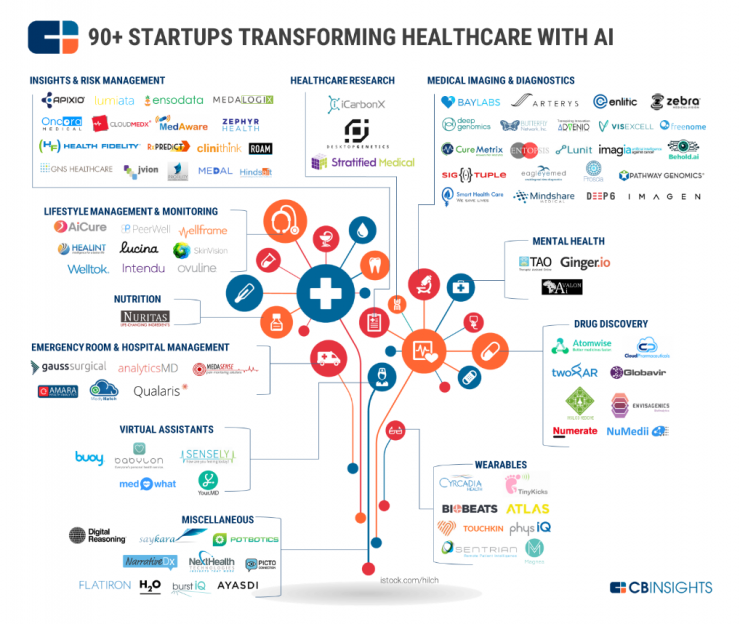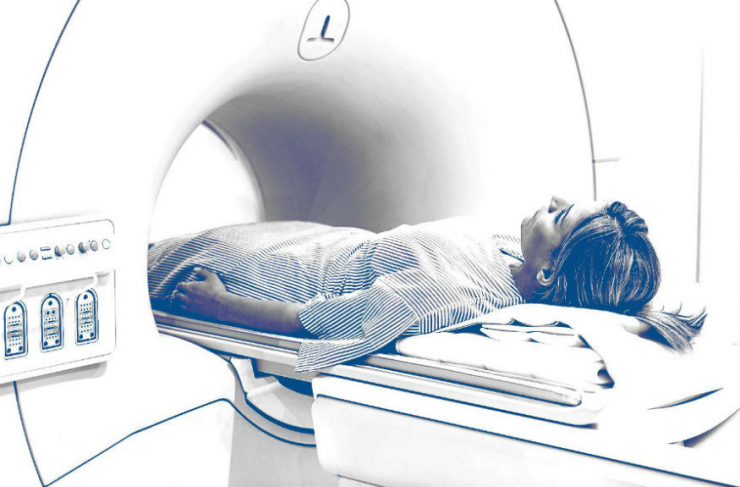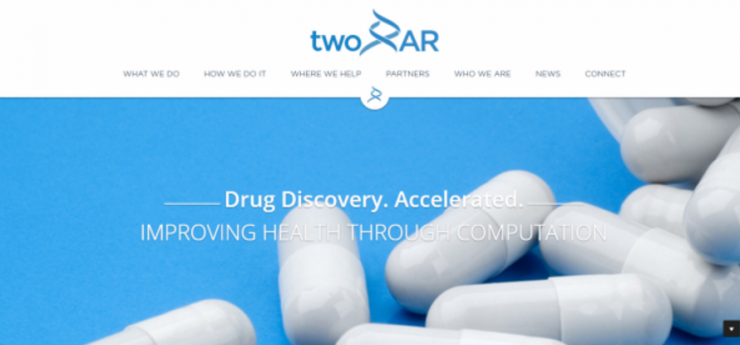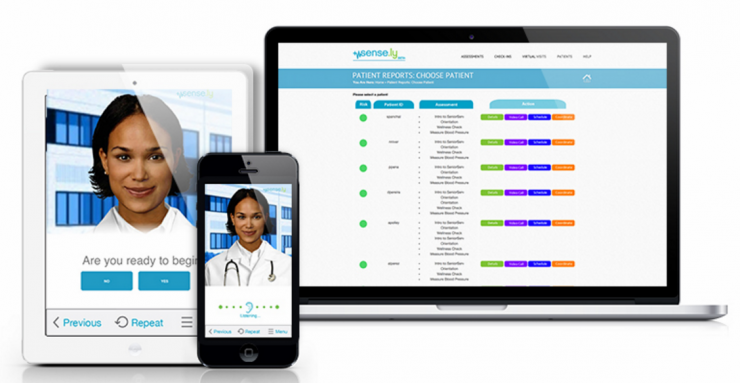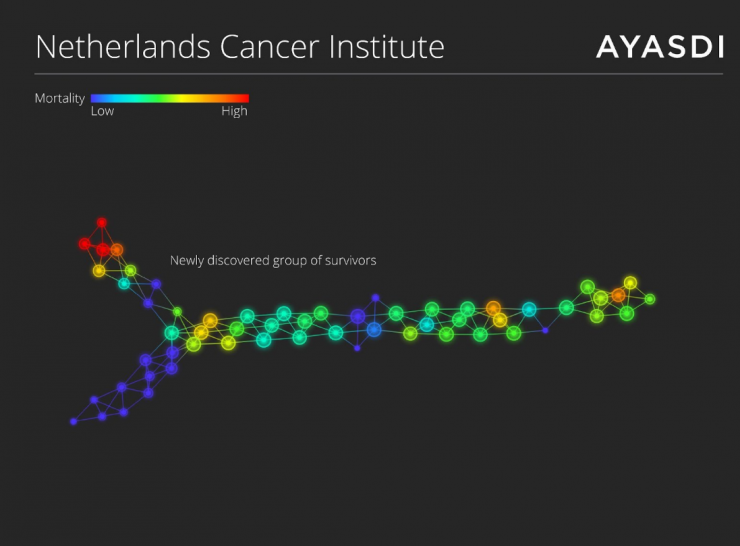What are the directions of 92 global medical AI startups?
A few days ago, CB Insights rearranged a picture of AI entrepreneurship in the medical field, and counted 92 active startups globally. In 2011, the number of financing transactions for AI medical companies was only 10, and by 2015, this figure had reached 60. Harpreet Singh Buttar, an analyst at Frost & Sullivan, stated, “By 2025, regardless of human health management or the use of avatars to communicate with patients, AI will infiltrate and permeate all aspects of life.†From this picture, we You can also see some hot spots of artificial intelligence + medical care. Image and diagnostics Since January 2015, 17 of the 22 AI startups in the imaging and diagnostics category have received Angel/A round of financing, and they can feel that this area has been blown out. Frost & Sullivan's report points out that since 2005, the storage of medical imaging data has increased tenfold, and will continue to grow as more advanced equipment is introduced. Representative company: Enlitic Enlitic Founded in January 2014, Enlitic is based in San Francisco, USA and employs 15 people. As a technology company that uses cutting-edge technologies such as artificial intelligence and machine learning to assist medical diagnostics, Enlitic uses deep learning algorithms to mine large volumes of data such as medical images, diagnostic books, and clinical trials. Currently, Enlitic has received US$12 million in financing, led by Amplify Partners, Capitol Health Partners, and Data Collective. Drug Discovery Company Currently, 6 of the 8 drug mining companies have obtained venture capital, and drug discovery is also an area of ​​concern. There are also a number of emerging companies involved. Representative company: twoXAR twoXAR Founded in 2014, the company's DUMA platform can identify drugs in a short period of time and obtain matching of drugs and diseases in large databases. Currently, the company has successfully tested their technology in more than 20 databases and obtained US$3.4 million in financing in November of last year. It is worth mentioning that the two founders' names are called Andrew Radin. Precision medicine represented by cancer treatment Because of the complexity and individualized characteristics of oncological treatment, if we can use artificial intelligence to achieve a precise reduction of “dimensionality reductionâ€, it will undoubtedly increase the efficiency of treatment. Maybe another life will be saved because of science and technology? Representative company: Pathway Genomics Hixo Pathway Genomic has been focusing on liquid biopsy and genetic testing, in addition to the acquisition of Illumina NextSeq 500 next-generation sequencing system, marketing high-risk gene kits for breast cancer screening, and collaboration with IBM Watson for artificial intelligence projects. Remote patient monitoring Current start-up companies mainly implement this function through natural language processing and deep learning. When patients describe symptoms by voice, the system can give feedback based on the knowledge of massive databases. Representative company: Sense.ly Sensely Molly, a virtual nurse assistant at Sense.ly, can track patients after they leave the hospital. According to the company, Molly can give doctors 20% daily feedback. Medical algorithm platform If there are restrictions on doctor resources or hospital resources, it is also a good option to focus on algorithms and provide solutions to medical providers. Representative company: Ayasdi Ayasdi developed an intelligent platform based on topological data analysis that mainly provides hospitals with patient risk assessment to reduce the rate of rehospitalization. Drbonnie360.com So which investment company favors AI+ medical? The answer is Khosla Ventures. Khosla Ventures has so far injected funds into five companies. They are: Ginger.io: Gathers user's short message, communication data through the mobile phone application, in order to judge early anxiety and depression; Lumiata: Utilizes medical artificial intelligence to strengthen risk and care management services for taxpayers, population health agencies and doctors. The company's core product is the Risk Matrix, which builds big data and builds medical maps by collecting data points from a large number of healthy members or patients. Zebra Medical Vision: An imaging imaging research platform in Israel, Khosla Ventures has already invested $8 million. The platform can quickly process large-scale data sets, use machine learning to develop imaging algorithms and obtain relevant information. Bay Labs: A medical imaging startup company that integrates ultrasound diagnostics and artificial intelligence. The company uses intelligent video analysis methods and models them to simplify the steps of diagnostic imaging. Atomwise: A drug discovery company emerging from Y Combinator, using advanced artificial intelligence computing capabilities to find solutions to illness in a short time. A list of 92 AI companies in the medical field can be found here. Follow-up Lei Feng Network (search for "Lei Feng Net" public number attention) will conduct detailed inventory reports for companies in various fields, so stay tuned. Via cbinsight Recommended reading: 10 Years of Medical Robot Company Established, No Product, No Profit, $150 Million U.S. Dollar Investment | Artificial intelligence "outlet", medical and financial take off first? Indoor Full Color LED Display P5 Rental, which made from die cast cabinet, it is easy maintenance. Indoor Rental LED Display using the distribution and modular design to improve the stability of the LED Screen control system. P5 LED Display widely used in Indoor Rental Projects, like Party, Conference, Concert, Stage Play etc. Looking forward your long term cooperation! P5 Rental Indoor,P5 Led Display Board,P5 Indoor Led Display,P5 Indoor Full Color Led Display Shenzhen Jongsun Electronic Technology Co., Ltd. , https://www.jongsunled.com